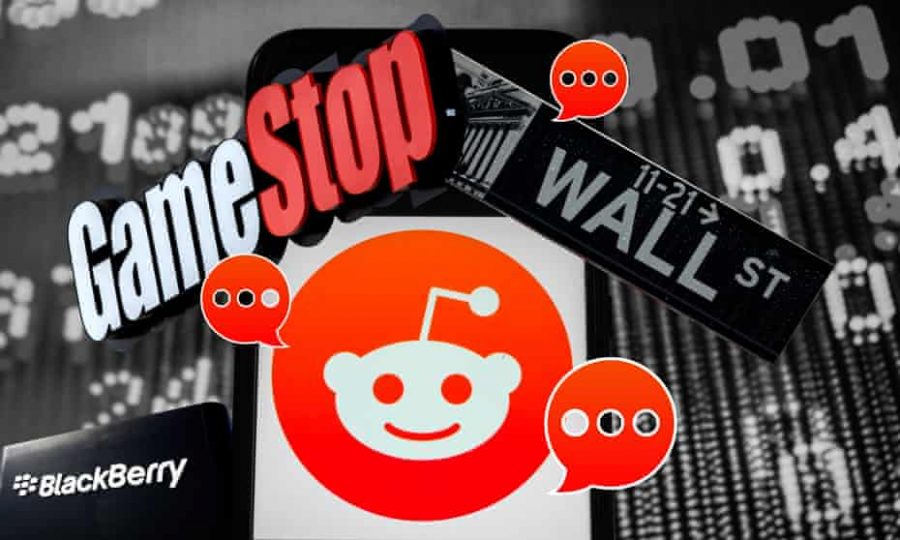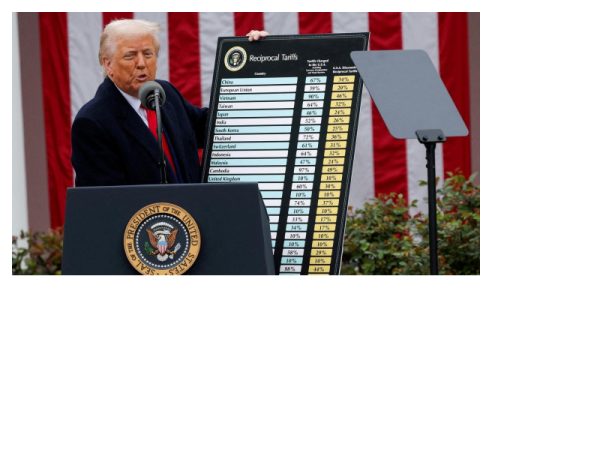Gamestop: Not An Anomaly But A Result
With the way the current market is set up, popular “meme-stocks” like gamestop introduce massive amounts of volatility that needs to be controlled.
“Gamestonk.” This tweet by Elon Musk added fuel to an already growing fire in a market phenomenon driven by the subreddit r/wallstreetbets, causing the price of Gamestop stock to skyrocket even further. This recent event caused large firms to lose billions of dollars in the process. The stock that had 113% of its shares shorted suddenly managed to expose some underlying problems with the way the stock market functioned. While it may seem like the short squeeze of Gamestop was just an anomaly in the stock market, it is actually just a culmination of the weaknesses in our current free market. The premise of a free market is not necessarily bad, but the way in which it operates now shows that there needs to be more regulation to prevent such abuses of the system. Not only do small retail investors such as those in r/wallstreetbets have the capacity to swing share prices in wild directions, but large firms can single handedly manipulate the market. As a result, the market is set up in a way that encourages extreme volatility, and thus there needs to be a few regulations such as market halts and increased trading transparency in order to stabilize the market.
“Holding back aluminum while buying the futures”
The first, and most blatant problem with the current free market is that large firms can single-handedly manipulate the futures of other companies and markets. In 2013, Goldman Sachs ran a scheme to artificially inflate the price of aluminum. In their warehouses, they held about a quarter of the entire US’s aluminum and only offloaded the bare minimum amount per day. What this did was create a shortage of the metal and thereby spiked the price of aluminum tenfold. Even as demand for the metal declined, the prices kept rising as a result of this scheme. The market was not able to “self-regulate” at this time, and this shows the power of large firms and how they can abuse it. While this alone is cause for concern, Goldman Sachs profited another way. They used their trading arm to make bets on aluminum futures and profited off of this. As a result, American consumers lost about $5 billion over the course of three years to these large companies. While the case for collusion was eventually dismissed by a federal judge, the fact that this anomaly wasn’t repaired further raises the need for market regulation.
Drastic market anomalies aren’t just unique to one firm, but rather a feature common to many. In 2013, JP Morgan and Chase used their control over the electricity market to manipulate prices in California. By “bidding up” the prices of energy during after hours, retail traders would end up buying overvalued shares once the market opened back up to the public. By bidding up the shares, the price of the utilities also went up. In one case, JP Morgan Chase got California utilities to pay $999 for one megawatt-hour (of electricity) when the asking rate was just $12.
“Selling Bad Mortgages while betting on them to fail”
During the recession of 2008, top firms bundled the mortgages of people with bad credit histories into mortgage backed securities. Despite the inherent risk of having securities based on the mortgages of people who could not pay them, they were still sold to investors who hoped to make money off of the interest collected from said mortgages. Goldman Sachs, seeing its risk, aggressively shorted the stock in a bet that the prices would fall without telling investors, further driving down its price. After the crash in 2008, they made millions in profits. Blatant, almost unfair exploits in the stock markets are used daily by these large firms and it shows that we need to have more control on the large investing firms that easily manipulate the prices of these shares.
“Buying a losing stock just to troll the Hedge funds?”
The current market is set up in a system that encourages cycles of greed and overproduction followed by massive recessions. The old saying on Wall Street is that the way the market is run is based on fear and greed. Take the recent Gamestop bubble, where retail investors on Reddit managed to drive up the share price of the stock by over 1500% in little over a week. As more retail investors saw an opportunity to “get rich quick” they also bought more shares. After all the initial buying frenzy died down, the price of the stock plummeted and many saw themselves deep in the red. This phenomenon, however, isn’t just a recent one. The stock market has remained extremely volatile over the past few decades. With investing becoming accessible to almost everyone, yet remaining unregulated, fear and greed (not the fundamentals of a company) hold an even greater sway over the way the market functions. The DotCom bubble of the 1990’s was similar in that investors believed that if they invested in any tech startup, they would become extremely rich. Like most bubbles, this one also popped and led to a significant depression between 2000 and 2002. While the market may have recovered eventually, the fact that there was a massive drop demonstrates the problem with the free market today. It is set up in a way that creates a perpetual cycle of massive booms and busts. This leaves the world with a few massive winners but with many people left “holding the bag.” The volatility that is so ingrained in this market is dangerous and should be checked.
How to regulate the market
The natural question is how to regulate these markets. Overregulation of a market often gives rise to government-supported monopolies as one sees all through Central America. While this may be a valid concern, it is very easy to avoid this. Specific policies that protect small investors can be implemented without the fear of establishing a monopoly. The Securities and Exchange Commission has not updated their policies in over a decade, and it is more than time for them to do so. To prevent the hyper-volatility of our markets like in the May 2010 flash crash where the market lost $1 trillion in value and rebounded just as fast, the SEC should consider implementing market halts to specific stocks. A brief freeze may seem like a very heavy-handed approach, but it could prevent massive greed/fear-based fluctuations in a stock price. The SEC should also increase market trading transparency, especially about the trades that large hedge funds make. This allows brokers to find the trading areas with better rates, giving more money to the small-time investor.
To prevent situations like what happened with the aluminium market and the current diamond market (which operates in a similar way to the aluminium market 2013), the SEC should also implement stricter laws on holding back resources. This will help prevent the price of goods from increasing even when there is overabundant supply. Finally, there should be increased scrutiny over the actions of the large firms to ensure that they don’t abuse their power. The general trend of these regulations is to ensure that the market is less controlled by large firms, less volatile, and more in accordance with basic economic principles.
Overall, while the stock market has provided many benefits to the general public, its volatility and ability to be easily manipulated by large firms poses a grave danger to the average person. There needs to be some kind of regulation to ensure that the market behaves in a less erratic and more logical manner.







